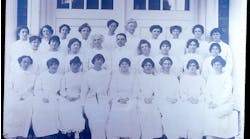Dear RDH:
I am writing in response to the letter titled, "Technique is everything," in the May 2000 issue. While I agree with the author that patients need to be fully informed about the status of their oral health, I do not agree with all of her comments. Ms. Coulson states, "I personally feel that to waste 30 minutes of my valuable time with each patient by just probing would be an injustice ..." A waste of time to probe? In my 20 years of dental hygiene experience, I must say that probing can be one of the best patient education tools we have!
I worked with a dentist who felt probing and collecting data was so valuable that the front desk manager would turn on the answering machine, temporarily leave her desk, and record my findings during probing. And, boy, do those patients` ears perk up at each appointment, anxious to hear their probing depth, areas of bleeding, and any other findings!
Ms. Coulson comments that she does not probe very healthy gingiva. How can you be certain it`s healthy without probing to determine sulcus depths and presence of bleeding?" I would never rely on color and tissue consistency alone! If Ms. Coulson`s probing technique takes up 30 minutes of her valuable time with each patient, perhaps some continuing education on instrumentation and diagnosis of periodontal diseases would be valuable.
Deb Oblisk, RDH
Strongsville, Ohio
Editor`s note: Ms. Coulson`s letter was in response to an article appearing in the March 2000 issue. The article`s author referred to patients objections about being "poked" during probing, and Coulson argued that "probing is merely one of the many tools that we have in our arsenal ..." In addition to the comment referred to above, she also wrote, "I routinely probe anyone that has less than great home care and who is exhibiting radiographic evidence of bone loss."
To submit letters to the editor for publication in Readers` Forum, send by:
- Mail - P.O. Box 3408, Tulsa, OK 74101
- E-mail - [email protected]
- Fax (918) 831-9804
Signed letters must include the city and state where the reader resides or practices.





